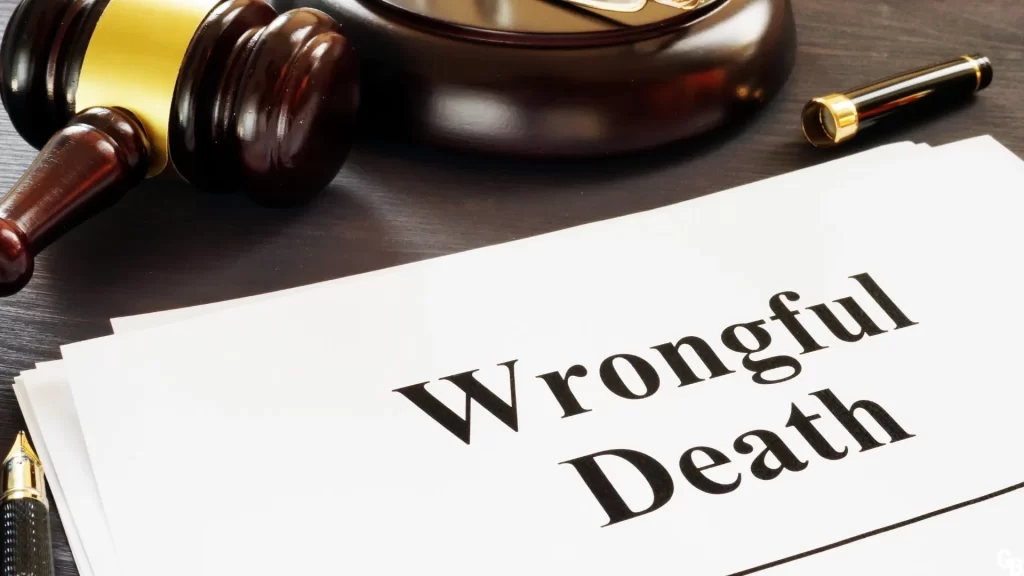In California, a wrongful death claim can be made when a person dies because of the actions of another party, whether that is an individual, a company, a government agency, or another organization. In some cases, there may be more than one responsible party. So, what are the rules for wrongful death in California? The Sacramento wrongful death attorneys at Guenard & Bozarth, LLP present this overview of the laws and process for wrongful death claims.
Wrongful Death in California
Wrongful death is the legal term referring to a death caused by another party’s actions, whether they were intentional, criminal, or careless. These actions are often an accident, but even in an accident, the liable party can be held responsible for the consequences of their actions. And when those consequences mean a loss of life, the impact on the family of the deceased can be severe and affect them for the rest of their lives.
In these cases, the people who are most affected by the death can file a legal claim against the liable party or parties. This is different from criminal charges. In a criminal case, you have to prove that a crime was committed, but in a civil case, such as wrongful death, you only have to prove that it is more likely than not that the defendant is responsible for the death. However, in some cases, you can file a wrongful death claim in addition to criminal charges.
Eligibility
In most cases in California, close family members are the ones who are eligible to file a claim for wrongful death. This can include one or more of the following: a spouse or domestic partner, a child or other dependent, a parent, a sibling, or another family member who suffers damages because of the victim’s death. In some cases, this may also be a representative of the estate, such as an executor or administrator.
Parties are prioritized according to how close the relationship was to the deceased. In other words, a spouse is generally given priority over a sibling, for example. Multiple parties may be able to join together in one case. A qualified wrongful death attorney can evaluate the options for your specific circumstances.
In most cases, the claim has to be filed within a certain amount of time, which is called a statute of limitations. For wrongful death in California, that is generally two years from the date of death. However, there are some exceptions to this. If the cause of death is not immediately clear or the claimant was a minor at the time of the family member’s death, there may be cause for an extension.
It is important to note that most cases against a government employee or agency have to be filed within six months of the death, so quick action is especially crucial in these cases.
In a recent case, an inmate at the Sacramento County Jail on J Street was attacked by a fellow inmate and later died of his injuries. The family received settlements from the County of Sacramento, Sacramento County Sheriff’s Office, and UC Davis, which was responsible for monitoring and providing mental health services for the psychiatric floor where the attack occurred.
The CDC ranked California as having the eighth-lowest accidental death rate in the US. The most recent data shows 21,168 accidental deaths. This is a rate of 51 per 100,000 residents.
Causes of Wrongful Death in California
While the circumstances of each wrongful death are unique, there are several common situations that often lead to legal claims. These include:
- Traffic accidents
- Medical malpractice
- Workplace accidents
- Defective products
- Premises liability, such as slip and fall injuries
- Criminal acts, sports or recreational injuries, animal attacks, or others
Even if your situation does not fall into one of these categories, you can still be eligible to file a claim. Your first step is to consult with experienced, compassionate Sacramento wrongful death attorneys, who can help you determine liability, maximize your settlement, and hold the party or parties accountable for their negligence.
FAQs
Q: What Is Considered Wrongful Death in California?
A: Wrongful death in California is when another party or parties’ actions that are negligent, reckless, or intentional lead to a preventable death. While there is no way to truly place a value on the loss of a loved one’s life, courts seek to compensate surviving family members for impact suffered by such a loss, including medical bills, funeral and burial costs, the loss of financial support, and the mental and emotional pain of their grief.
Q: What Is the New Law in California for Wrongful Death?
A: The new law in California for wrongful death is Senate Bill (SB) 447, which made changes to the way damages can be awarded in wrongful death cases. As of 2022, damages in wrongful death cases can also include the pain, suffering, and disfigurement suffered by the victim before they died.
Q: What Evidence Should Be Admitted in a Wrongful Death Case?
A: The evidence that should be admitted in a wrongful death case is anything that proves the cause of death and shows the impact of the loss on the family member’s life. This can include medical records, autopsy and police reports, witness and expert testimony, photographs and videos, financial records, doctor and hospital bills, and invoices related to funeral and burial costs.
Q: What Is the One Action Rule for Wrongful Death in California?
A: The one-action rule for wrongful death in California means that only one legal claim can be filed against a responsible party. For example, if a person dies in a car crash, their spouse and children are not allowed to file separate legal claims against the other driver for wrongful death. Instead, they either have to combine their claims into one legal action, or the court determines which one is a higher priority based on the hierarchy described above.
Experienced Legal Representation for Wrongful Death in Sacramento
If a close family member died as the result of someone else’s actions, you may be entitled to file a legal claim and receive compensation for your loss. The legal team at Guenard & Bozarth, LLP has recovered more than $130 million for clients and is committed to holding negligent parties accountable for your loved one’s preventable death. Contact our office today to schedule a consultation.

